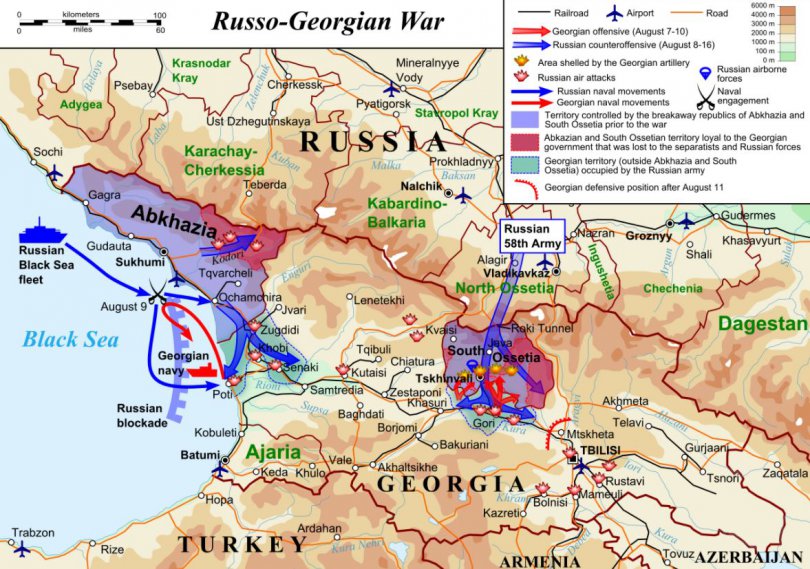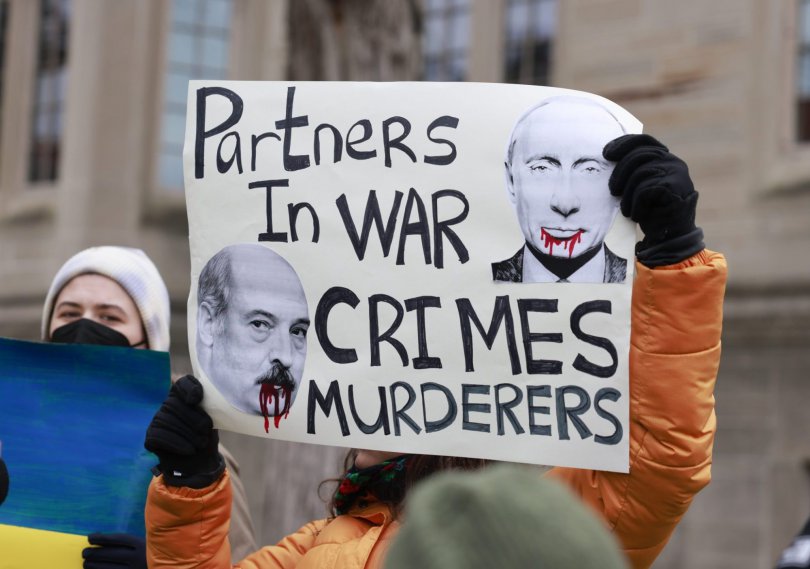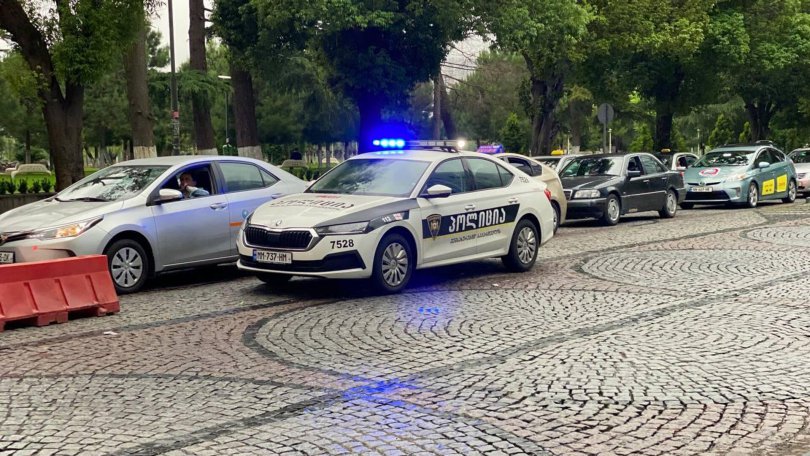
On this day in 2008, Russian armored columns other than the so-called peacekeepers crossed the Russian-Georgian state border in large numbers. In parallel, so-called South Ossetia militias, who just like the “people’s armies” of eastern Ukraine were de facto part of the Russian Armed Forces commanded by Russian officers, were shelling Georgian villages. Two Georgian peacekeepers died on that day and several were wounded.
The 58th Russian Army was pre-positioned in the immediate vicinity of the border after the large-scale exercises “Kavkaz 2008” ended, but the army did not leave the area. On August 6, OsRadio, a propaganda outlet of the proxy regime in Tskhinvali reported that “volunteers were already arriving from Russia.”
As intelligence reports on the incursion were pouring in, Georgia’s leadership of the time was facing a simple question: to respond militarily, or try raise international response. But the timing was bad, as the world attention was focused on the opening of the Beijing Olympic games and many of the decision-makers on holidays.
Georgia chose to open fire on the advancing Russian armored columns, as well as to suppress the fire sources in Tskhinvali. Ever since, Russia claims it only sent troops over the border on August 8, responding to “Georgian aggression.”
Since 2008, plenty of evidence of Russia’s incursion taking place on 7th rather than 8th has accumulated. Perhaps for that reason key international actors, such as the US Department of State, the EU and several of its member states issue clearer statements with the focus on August 7 as the date of the war’s start.
“Senior American officials reviewed and described this data [Georgian evidence on the Russian incursion] as credible if not conclusive, suggesting there were Russian military movements into Georgian territory as tensions accelerated toward war,” said New York Times in a September 15 article based on independent review of Georgia’s intelligence intercepts of the Russian troop movements.
With the exception of the Foreign Ministry’s rather low-profile statement, the voices of Georgia’s own Government and its leaders were rather absent today. Instead, just like in previous years and on the same day, as the Russian Government, they will mark the war anniversary on August 8 continuing their domestic political gamble on the fear of war with Russia and blaming the previous administration for the war.






